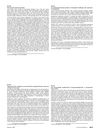Clinical Markers of Hyperandrogenism and Response to Conventional Antibiotic Therapy in Women with Acne Vulgaris
July 1989
in “
British Journal of Dermatology
”

TLDR Women's acne improvement with antibiotics is not linked to signs of high male hormones.
In a study from 1989, 60 women with acne vulgaris who did not show an 80% improvement in acne severity after 6-9 months of conventional antibiotic treatment were compared with 60 women who did show such improvement. Both groups had a mean age of 22 years and were matched for age, acne severity, predominant acne site, and current use of hormonal therapy. The study found no significant difference in clinical markers of hyperandrogenism, such as hirsutism scores, age at menarche, incidence of androgenic alopecia, keratosis pilaris, acanthosis nigricans, and hidradenitis suppurativa, between the two groups. There was also no correlation between improvement in acne severity and hirsutism score. The results indicated that clinical features of hyperandrogenism are not related to the lack of response to conventional antibiotic therapy in women with acne vulgaris, suggesting that raised circulating androgens are not a significant factor in the development of resistant acne. Therefore, clinical markers of hyperandrogenism cannot predict which female patients will respond to conventional antibiotic therapy.

